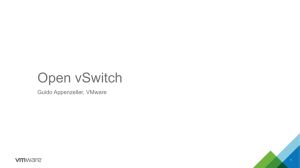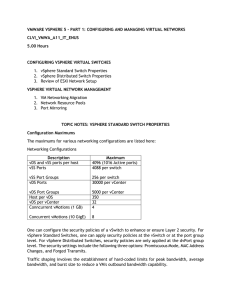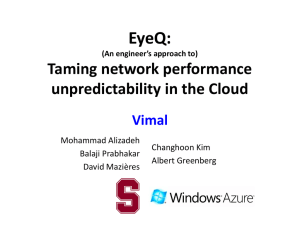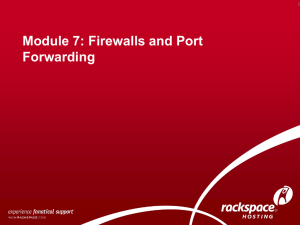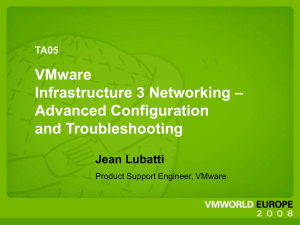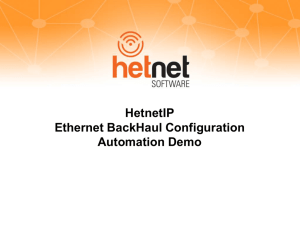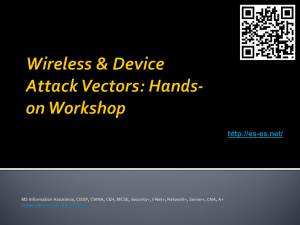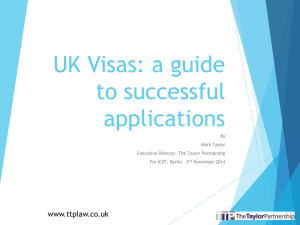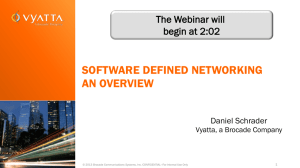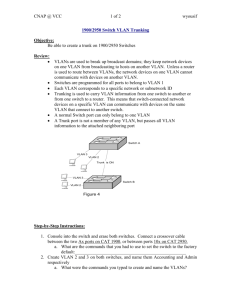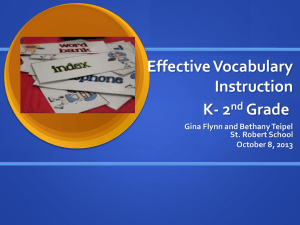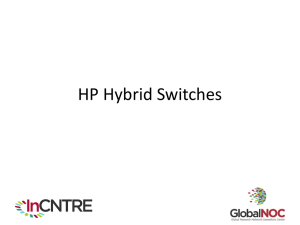Virtual Infrastructure 3
advertisement
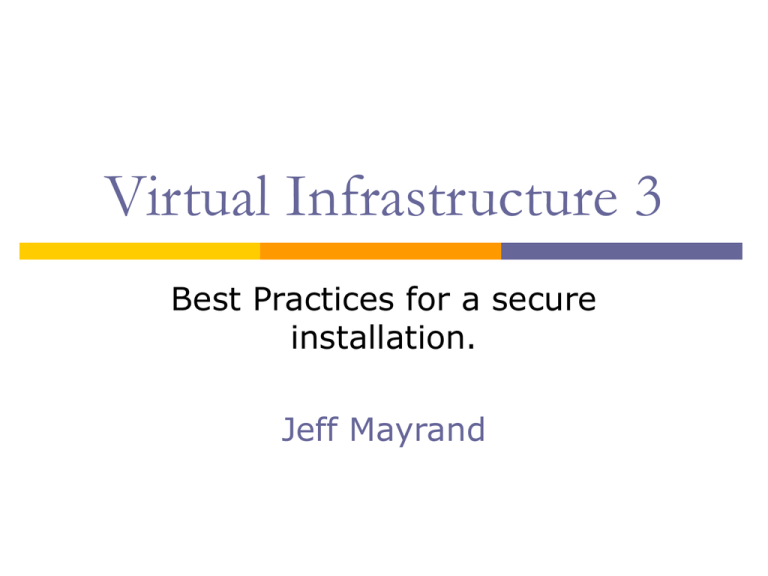
Virtual Infrastructure 3 Best Practices for a secure installation. Jeff Mayrand Contents Architecture changes (General Overview) General Account Security VSWIF Security Web Security Monitoring / Security Toolkits VMware Virtual Appliances Architecture Changes MUI Removed From ESX Server Console and Guests Soft Switches are Visible - Complete ReWrite of Network Code VM Backup Proxy VMFS 3 General Account Security Do use SUDO and Wheel Groups to segment administrative functions. Create separate service accounts for operation of Virtual Center Recommended administrative groups (VMAdmins, ESXAdmins) Virtual Switch Overview Vswitch at its core is a layer 2 forwarding engine. VLAN Tagging / Stripping / Filtering Units Very Modular (3rd Party Addons) Part of Community Source Virtual Switch vs Physical Switch How is it the similar? Maintains MAC Port forwarding table. Support VLAN segmentation per port. Supports copying packets to mirror port (span port) Can be managed remotely by administrator. Virtual Switch vs Physical Switch How is it different? Direct channel from VNIC’s for control data (Checksum / segmentation) Very wide control channel. Authoritative MAC filler updates. No IGMP Snooping to learn multicast group membership. No learning of unicast addresses. Ports can automatically enter mirror mode. Vswitch Isolation – How to ensure no traffic leaks between vswitches? Switches are not cascaded so no code sharing between. Vswitches cannot share uplink ports. Each vswitch has its own forwarding table Vswitch Isolation – How to ensure guests cannot impact switch behavior? Vswitches cannot learn from the network to populate the forwarding table. Vswitches make copy of frame to prevent inflight modification (wide control channel) Vswitch Isolation – How to ensure frames are in appropriate VLAN? VLAN data carried outside frame. (wide control channel) Vswitch has no dynamic trunking. Vswitch has NO native VLAN support. VSWIF1 App Public Tier ISA RDP Client Monitoring Backup Server Management / Backup Virtual Management Console Vmotion VSWIF2 App Private Tier VSWIF3 Middle Tier VSWIF4 Data Tier VSWIF0 - CON Web Security Update and use SSL certificates on ESX hosts and on Virtual Center Core is Apache so check into all know apache exploits. MUI removed from ESX hosts which makes securing easier less widespread. Monitoring and Security Toolkits SNMP is default monitoring access. (OID Masking, Community Strings) Security toolkits are available for helping check for changes to available ports and known exploit validation. Network Security Toolkit Virtual Machine (Nagios, Nessus, Nmap) Common Vulnerabilities and Exposures (Many false positives) Virtual Appliances Know who’s providing it to you! Isolate before you put into production. Place extra effort to validate and monitor after you put in. (Rogue traffic, configuration changes, etc) WWW Resources http://www.vmguru.com/ http://www.vmware.com/vmtn/technology /security/ http://vmprofessional.com/
